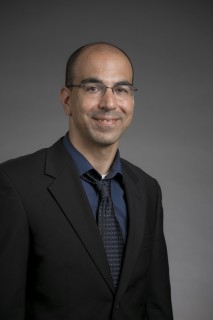Moti Mizrahi, Florida Institute of Technology – “Scientism” as an Anti-Science of Doubt and Disbelief
 The terms people use to stoke disbelief and doubt in science can be costly.
The terms people use to stoke disbelief and doubt in science can be costly.
Moti Mizrahi, associate professor of philosophy in the school of arts and communication at Florida Institute of Technology, details how.
Moti Mizrahi is Associate Professor of philosophy in the School of Arts and Communication at the Florida Institute of Technology. He received his PhD in Philosophy from the Graduate Center of the City University of New York in 2010. He has published extensively on the philosophy of science, the scientific realism/anti-realism debate, the epistemology of philosophy, and argumentation. His books include The Kuhnian Image of Science: Time for a Decisive Transformation? (2018), The Relativity of Theory: Key Positions and Arguments in the Contemporary Scientific Realism/Antirealism Debate (2020), and For and Against Scientism: Science, Methodology, and the Future of Philosophy (2022).
“Scientism” as an Anti-Science of Doubt and Disbelief
The term “scientism” is used in the war against science on social media. In much the same way they have co-opted and weaponized the pro-choice phrase “my body, my choice,” anti-vaxxers co-opted and weaponized the philosophical term “scientism” to create mass doubt and disbelief concerning the COVID-19 vaccines, without understanding the various philosophical views that “scientism” encompasses.
For anti-vaxxers, to get vaccinated is to worship science as a god and to accept science without question. However, there is a continuum between a dogmatic acceptance of science, or “science worship,” which is often mistakenly referred to as “scientism,” and a dogmatic rejection of science, or “science denial.” If “science worship” is misguided, as anti-vaxxers claim, then “science denial” is misguided, too. In fact, dogmatic science denial is more misguided and dangerous than dogmatic science worship.
Why? Because science is the most successful knowledge-producing enterprise in human history. Our best scientific theories provide explanations for phenomena that would otherwise seem mysterious to us, make novel predictions that are borne out by experimentation and observation, and allow us to intervene in nature technologically. The view that acknowledges the success of science, especially when compared to non-scientific areas of inquiry, is scientism. Scientism is the view that scientific knowledge is superior to non-scientific knowledge in terms of explanatory, predictive, and instrumental success. So, in the fight against infectious diseases, like COVID-19, we better rely on the best we’ve got, namely, our scientific knowledge of such diseases, or reject science at our own risk.
Read More:
[Aeon] – Why not scientism?
[Rowman & Littlefield] – For and Against Scientism



My goldfish knows more about scientism than this guy…
Is a series of strawmen in the spirit of science?
This Academic Minute is an excellent example of Scientism.